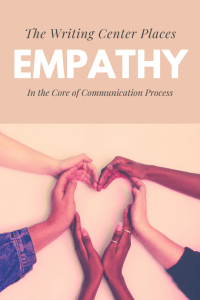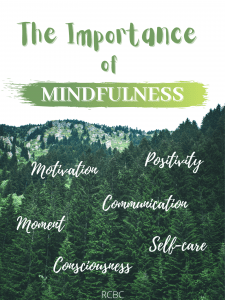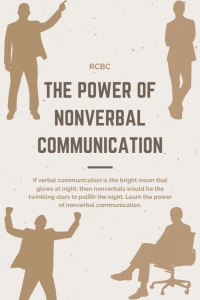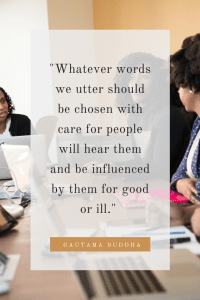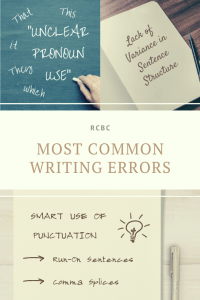By Communication Consultant Carolyn Reagan (Undeclared, ’23)
 After scheduling your appointment at RCBC through our website, you may be wondering how to best prepare. The following article will give you an idea of what to expect during your appointment.
After scheduling your appointment at RCBC through our website, you may be wondering how to best prepare. The following article will give you an idea of what to expect during your appointment.
Because of the ongoing COVID-19 Pandemic, all appointments are being conducted online through Zoom. However, prior to the pandemic, we offered in-person appointments on the third floor of the Rauch Business Center. We hope to resume in-person operations as soon as it is safe. In the meantime, Zoom proves to be an incredibly helpful tool. Below are some steps to consider prior to your appointment:
- Following scheduling your appointment, you will receive your corresponding Zoom link through email. We recommend that you leave a short description of what you want to work on during your appointment (eg. course, assignment) and then log on about 5 minutes before your scheduled appointment. You may wait a short time in the waiting room, especially if another student’s appointment is ending.
- Be sure to come prepared with all necessary material for a productive appointment. Have ready your current draft, the assignment prompt, and any applicable rubrics or materials provided by your professor. Oftentimes, we may be familiar with your assignment, especially because we generally see repeating assignments or we might have taken the same class during our time at Lehigh!
- Consider emailing (inrcbc@lehigh.edu) your draft and assignment ahead of your appointment; this way, we are able to fully familiarize ourselves with your work and the nature of the assignment’s requirements and instructions.
During the actual appointment, it is our priority that you feel as comfortable as possible. We hope that you are as open as possible about how you currently feel about your assignment, and what we can do to help you. Be sure to let us know what part of the assignment you want to focus on. We can work on grammar, organization, content, and more! During the meeting, we are very flexible! Sometimes our meetings involve using the “Shared screen” option on Zoom, other times they include practice presentations, or just a simple questions and answers session! Most frequently, we utilize Google Drive (Google Docs, Slides, etc.) to engage in a meaningful discussion about sentence structure, organization, word choice, and assignment requirements.
Though we primarily work on written and academic assignments, we have also helped students with their resumes, Pecha Kucha presentations, and interview skills! Because the Communication Consultants represent a range of majors and school years, we typically have the training and experience to support any kind of communication related assignment.
Following your consultation, we will send you a completely anonymous survey to provide feedback on your experience with RCBC; there, we encourage you to share your experience with our center so that we can continue to improve our offerings. It is also worth noting that if you are unable to book a Zoom consultation due to scheduling conflicts, we are able to provide feedback over email. Simply send us your draft, assignment, and rubric to our address (inrcbc@lehigh.edu). In the email, let us know what help you need, and we will respond with detailed feedback, usually in under 24 hours during the week (longer for papers submitted during the weekends and holidays). If you have any other questions before your appointment, feel free to email us. We hope to be a helpful resource to you during your time at Lehigh!
Get information and resources about our center at The Philip Rauch Center for Business Communication.


